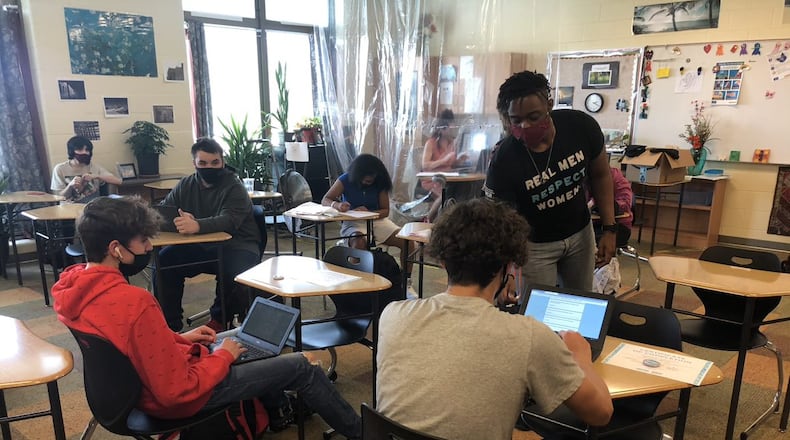“We’re already seeing some really powerful, powerful results,” said Marshall Weil, development director with YWCA Dayton.
About 1 in 4 women will experience abuse from a partner, primarily men. This was exacerbated in 2020, when the pandemic heightened risk factors. And problems are found in society beyond the home, such as street harassment.
To respond to this, YWCA Dayton become one of five pilot sites in the U.S. to expand the Nashville-based AMEND program into their community.
“We know most men are not abusers. We also know that most abusers are men,” Weil said. “And so for those of us who identify as male, we have a responsibility to one another and for one another, to make sure that we’re creating an environment and a world where women and girls can not only live but live peacefully.”
AMEND Together is supported in part by donations, philanthropists, and organizations such as Montgomery County Alcohol, Drug Addiction and Mental Health Services.
The program in the first year had about 17 clubs, including Dayton Public Schools and DECA, and served a little over 240 boys and as of now have doubled their memorandums of understanding for next school year. They are also working on an open program online for boys in schools without a club who still want to join.
The program adapts for different schools but is essentially a 20 week curriculum that is is conversation based and designed for middle and high school boys. They tackle topics like catcalling, the role of the bystander, and dating violence.
Surveys of participants before and after the program show shifts in attitudes.
Before, 62% said calling or sending unwanted emails and texts is unhealthy, but afterwards 74% agreed with that statement. About 39% before the program said the “bystander” has a role in teen dating violence but afterwards 69% agreed. And before about 88% disagreed that if a man or boy cries he is weak, while afterwards 94% disagreed.
Beyond the surveys, he said they’ve had stories of students in the program opening up about abuse they’ve witnessed or experienced, and opening up about their identities.
“We had a school call us and say ‘we’ve had students who have actively called out or called in other students for catcalling in the hallway,’” Weil said.
About the Author

